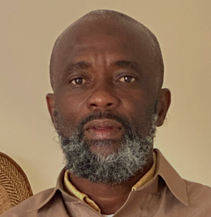By Stanley R. K. AHORLU
The 83rd session of the Marine Environment Protection Committee (MEPC) of the International Maritime Organization (IMO) concluded on April 11, 2025, with the adoption of new regulations aimed at achieving the targets set by the IMO’s 2023 Revised GHG Strategy. The regulations were passed by majority vote in favour of a compromise proposal.
In the weeks leading up to the vote, two main options had emerged: a flat-rate carbon levy combined with a fuel standard, versus a no-levy emissions trading system. African member states were energetically urged, particularly by proponents of the levy, who saw Africa as a natural ally, to engage fully in the negotiations.
In the end, 79 delegates voted, with around 25 abstaining. Only about a dozen African state parties to the IMO participated in the vote. Notably, Kenya, Namibia, Senegal, and South Africa voted in favour of the compromise proposal.
Algeria and Morocco voted against it. The remaining African states that participated—Ghana, Egypt, Liberia, Uganda, Madagascar, and Seychelles—reportedly abstained.
Supporters of the compromise view it as a half-full glass. It requires ships to reduce the carbon intensity of their fuels, cutting shipping emissions by an estimated 8% by 2030. It also establishes shipping as the first sector to be subject to a global carbon price.
The credit trading component of the plan could generate between $30 billion and $40 billion by 2030, with an annual $10 billion increase thereafter. The revenue is expected to subsidise zero- and near-zero emission fuels (ZNZ) and fund climate projects in developing countries.
Those who opposed the compromise—primarily petro-states—argued that the proposal failed to balance energy security, climate action, and economic development. They warned that it could undermine food security and increase costs in vulnerable economies.
Then there are the abstentions. Chief among them were the Pacific Island states, backed by green groups, who had championed a flat carbon levy of $150 per tonne of CO₂. They abstained and clearly explained why.
In their view, the compromise plan offered no real support to the most climate-vulnerable countries, who will still bear the costs of decarbonization since shipowners are expected to pass these on to shippers.
They also pointed out that the revenues projected fall far short of what is needed to compensate nations already ravaged by climate change.
Moreover, they argued that the plan was not a real consensus, as their concerns were not considered in the drafting.
Worse, it falls short of the IMO’s GHG strategy targets—allowing business-as-usual trading until 2028—and while it aims for an 8% reduction in GHG emissions by 2030, that target still lags well behind the IMO’s goal of 20%, striving for 30%, by the same date.
They also projected that the plan would increase transportation costs by up to 80% by 2050.
Their message was clear: if the deal delays action, undermines ambition, deepens global inequality, and creates new sacrifice zones, then it is time to ask, “A deal at what cost?”
Those were the Pacific states’ reasons. Could similar arguments explain the abstentions and no-shows of African state participants? With no official statements from the African abstaining countries, we are left to speculate.
To begin with, the Pacific states’ rationale cannot be automatically applied to Africa. While both regions are climate-vulnerable, African abstaining and no-show states face additional economic and developmental vulnerabilities that differ in scale and kind.
Africa is home to 32 of the UN’s 44 Least Developed Countries (LDCs), compared to just three in the Pacific.
This makes Africa’s developmental needs an existential priority. Yet, the continent continues to suffer limited access to global capital, further complicating its development agenda.
Africa is also heavily reliant on imports, including maritime transport services. Combined with the length of its supply chains, this makes freight costs disproportionately high. Unlike the Pacific, whose major trading partners are geographically closer, Africa faces long routes and underdeveloped regional trade. Intra-African trade remains low and stagnant.
The African maritime sector itself is underdeveloped, with little short-sea, coastal, or inland waterway shipping.
Africa’s contribution to the global fleet is negligible, and what exists is mostly old and poorly maintained. As a result, African seafarers struggle to secure employment or the sea time needed for certification.
In addition, Africa remains vulnerable to external climate measures such as the EU Emissions Trading System (ETS), which further increases maritime transport costs for the continent.
So while Pacific states have emphasised climate vulnerability and the cost of damage from GHG emissions, African countries can justifiably emphasise economic vulnerability and their need for equal, nondiscriminatory access to climate finance. Their best alternative in the event of no agreement is not likely to mirror that of the Pacific.
Yet, like the Pacific states, most African delegates at MEPC 83 abstained. Unlike the Pacific states, however, the African abstentions remain officially unexplained.
An abstention can be a form of protest, like the Pacific states, which felt excluded from the drafting of the compromise and saw no benefit in it. But abstention can also signify indecision.
If the African states were prioritising development, they might have considered the plan’s revenue potential and the promise of funding for LDCs as reasons to support it, just as South Africa, Namibia, Senegal, and Kenya did.
On the other hand, if those same states were weighing the principle of “polluter pays” and aiming for a just and equitable transition, they might have viewed the compromise—particularly the anticipated 80% increase in transport costs by 2050, the potential worsening of food insecurity, and increased costs of fuel for domestic fleets—as unjustifiable. That would have aligned them with Algeria and Morocco in voting “No.”
But Egypt, Ghana, Liberia, Madagascar, Seychelles, and Uganda abstained with no documented explanation.
Perhaps they are taking time to study the implementation guidelines in the hope of influencing adoption at the next round of discussions in October. For now, their decision to abstain remains an incompletely theorised outcome.
Even more puzzling is Nigeria’s no-show. Nigeria was reportedly present throughout the proceedings but failed to vote or register an abstention.
This silence, at a crucial decision-making moment, may be a perfect reminder of the African proverb: “The fact that the lizard repeatedly nods its head does not mean it agrees with you.”
All considered, Africa’s abstentions and no-shows at MEPC 83 may provide rich material for the pseudo-intellectual debates of African traders about the high cost of the continent’s merchandise trade.
But more seriously, it could stand as yet another example of the high cost of Africa’s disunity, and the chronic failure of its leaders and policymakers to treat participation in global fora, where decisions shape the continent’s future, with the seriousness and urgency they deserve.
The Pacific countries walked away together from the compromise plan. Can African countries do the same? What is their best alternative to no agreement?
If Africa is to shape the outcome of the compromise plan before its adoption in October—and influence its eventual implementation—it must find a common voice.
A compromise implies no clear winners or losers, just a negotiated settlement. But that settlement must be shaped, not simply received.
The author is the President of Ghana Chamber of Shipping. He can be reached at [email protected].










